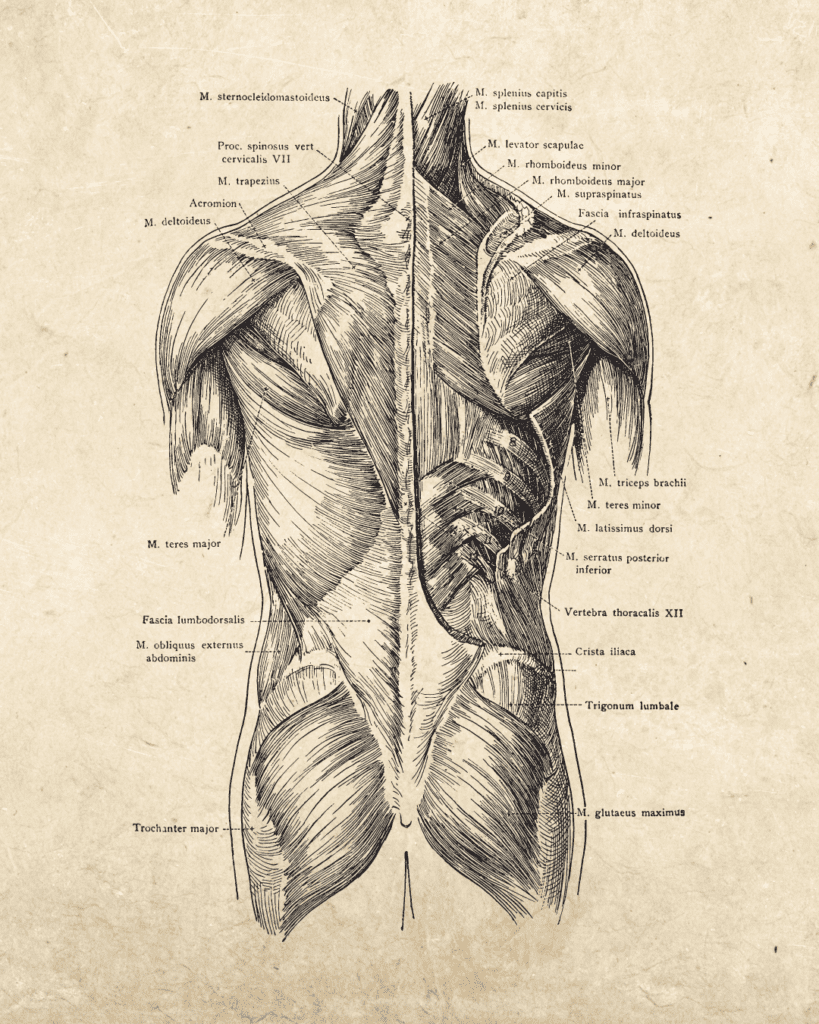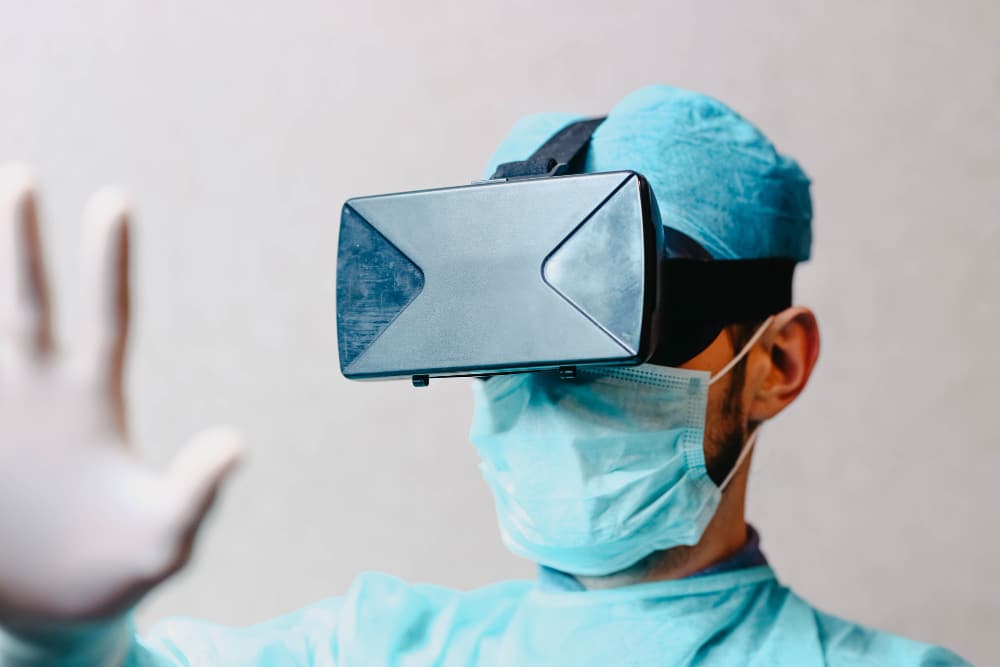As the New Year comes around and everyone is making resolutions and setting out goals for their year, it’s easy to get lost on where to start. You might start seeing diet trends, new year workout programs, and all sorts of words that may be new to you or may take on a different meaning with emerging trends. There are quite a few terms that are thrown around in the health and wellness community that you may have some questions behind, or maybe you’re wondering where to start researching as you embark on your own personal wellness journey this year. While the landscape of health and wellness is ever-changing, we’ve done our best to research and compile a comprehensive list of definitions of some of the buzzwords you might encounter to help get you going in the right direction! Knowing the meaning of some of these terms can really help you understand your own health journey a little better and eventually lead you to expand your health and wellness vocabulary, so let’s jump in.

Key Health and Wellness Words
Adrenal Health (noun): According to Johns Hopkins Medicine, “adrenal glands, also known as suprarenal glands, are small, triangular-shaped glands located on top of both kidneys. Adrenal glands produce hormones that help regulate your metabolism, immune system, blood pressure, response to stress and other essential functions.”[1]
Clean Foods/Products (noun phrase): Foods and products that are viewed as non-toxic and usually have minimal to no processing. They are usually products and foods constructed or made with naturally occurring substances and are typically held in containers that are non-toxic, like glass or metalware.
Cortisol (noun): The Cleveland Clinic defines it as “a steroid hormone that your adrenal glands, the endocrine glands on top of your kidneys, produce and release. Cortisol affects several aspects of your body and mainly helps regulate your body’s response to stress, helping control your body’s metabolism, suppressing inflammation, regulating blood pressure and sugar, and helping control your sleep-wake cycle.”[2]
Cycle Syncing (verb): According to Hannah Hopper, this is “the practice of naturally balancing hormones by structuring our life around the four phases of our menstrual cycle.”[3]
Deficiency (noun): A shortage of substances necessary to health.[4]
Diet (noun): Food and drink regularly provided or consumed, habitual nourishment.[5]
*Editors Note- At TopDoctor Magazine, we often talk about diet. When we use this word, unless otherwise stated, we are not referring to food restrictions. We believe it is important to have healthy discussions around our health and wellness in relation to our daily diets, as defined above.
Elimination Diet (noun): “Used to identify food intolerances, sensitivities, and allergies through diet. They remove foods known to cause uncomfortable symptoms and reintroduce them later while testing for symptoms,” as defined by Ryan Raman.[6]
Endocrine Disruptors (noun): Per the National Institute of Environmental Health Sciences (NIEHS), “endocrine-disrupting chemicals (EDCs) are natural or human-made chemicals that may mimic, block, or interfere with the body’s hormones, which are part of the endocrine system. These chemicals are associated with a wide array of health issues. Endocrine disruptors are found in many everyday products, including some cosmetics, food and beverage packaging, toys, carpet, and pesticides.”[7]
Endocrine System (noun): Defined by the NIEHS, “endocrine glands, distributed throughout the body, produce the hormones that act as signaling molecules after release into the circulatory system. The human body is dependent on hormones for a healthy endocrine system, which controls many biological processes like normal growth, fertility, and reproduction.”[8]
Food Intolerances (noun): “A food intolerance response takes place in the digestive system. It occurs when you are unable to properly break down the food. This could be due to enzyme deficiencies, sensitivity to food additives or reactions to naturally occurring chemicals in foods,” from the American Academy of Allergy, Asthma & Immunology.[9]
Fortified Foods (noun phrase): “The practice of adding vitamins and minerals to commonly consumed foods during processing to increase their nutritional value,” per Rebecca Olson, Breda Gavin-Smith, Chiara Ferraboschi, and Klaus Kraemer.[10]

Functional Medicine (noun): According to the Institute for Functional Medicine, “a systems biology–based approach that focuses on identifying and addressing the root cause of disease. Each symptom or differential diagnosis may be one of many contributing to an individual’s illness.”[11]
Genomics (noun): “Genomics is a field of biology focused on studying all the DNA of an organism — that is, its genome. Such work includes identifying and characterizing all the genes and functional elements in an organism’s genome as well as how they interact,” as defined by Eric Green.[12]
Grounding (noun): “Grounding, also called earthing, is a therapeutic technique that involves doing activities that “ground” or electrically reconnect you to the earth. This can include walking barefoot, lying on the ground, submersing in water, or using grounding equipment,” per Eleesha Lockett.[13]
Gut Microbiome (noun): “Your gut microbiome consists of trillions of microorganisms that live in your esophagus, intestines, and stomach and affect each other and their environment in various ways. They influence many aspects of your overall health, both within your digestive system and outside of it,” as defined by the Cleveland Clinic.[14]
Heavy Metals (noun): From the Cleveland Clinic, “microscopic molecules of metals accumulate within your body after exposure. Heavy metals attach to your cells and prevent them from properly performing their functions. Some common heavy metals include lead, mercury, arsenic, cadmium, and thallium and can be found in things like pipes, batteries, cigarette smoke, and more.”[15]
Holistic Health (noun phrase): Defined by Western Connecticut State University as “an approach to life that considers multidimensional aspects of wellness. It encourages individuals to recognize the whole person: physical, mental, emotional, social, intellectual, and spiritual.” [16]
Hormones (noun): According to the Cleveland Clinic, “chemicals that coordinate different functions in your body by carrying messages through your blood to your organs, skin, muscles and other tissues. These signals tell your body what to do and when to do it. They control different bodily processes, including growth and development, reproduction, internal balance, and sexual function.”[17]
Hormone Replacement Therapy (noun): “Primarily focuses on replacing the estrogen that your body no longer makes after menopause. There are two main types of estrogen therapy; systemic hormone therapy and low-dose vaginal products,” according to the Mayo Clinic Staff.[18]
Inflammatory Foods (noun phrase): Katie McCallum defines it as “an immune system reaction causing inflammation can occur when eating inflammatory foods such as processed meats, packaged snacks like cookies and crackers, artificial sweeteners, refined grains and vegetable oils, and fried foods.”[19]

Intuitive Eating (verb phrase): Accroding to Evelyn Tribole, it “helps you cultivate attunement to the physical sensations that arise from within your body to get both your biological and psychological needs met and removes the obstacles and disruptors to attunement, which usually come from the mind in the form of rules, beliefs, and thoughts.”[20]
Micropigmentation (noun): “Also known as permanent makeup, permanent cosmetics or cosmetic tattooing, is a cosmetic procedure used to improve or replace lost coloring on your skin,” per the Cleveland Clinic.[21]
Mindfulness (noun): The practice of maintaining a nonjudgmental state of heightened or complete awareness of one’s thoughts, emotions, or experiences on a moment-to-moment basis.[22]
Naturopathic Medicine (noun): “A system that uses natural remedies to help the body heal itself. It embraces many therapies, including herbs, massage, acupuncture, exercise, and nutritional counseli,” from the WebMD Editorial Contributors.[23]
Prebiotics (noun): A substance and especially a carbohydrate that is nearly or wholly indigestible and that when consumed (as in food) promotes the growth of beneficial bacteria in the digestive tract.[24]
Probiotics (noun): A microorganism that when consumed (as in a food or a dietary supplement) maintains or restores beneficial bacteria to the digestive tract.[25]
Regenerative Medicine (noun phrase): “Seeks to replace tissue or organs that have been damaged by age, disease, trauma, or congenital issues rather than treat symptoms. The tools used to realize these outcomes are tissue engineering, cellular therapies, and medical devices,” from the University of Pittsburgh’s McGowan Institute for Regenerative Medicine. [26]
Stem Cells (noun): “The body’s raw materials — cells from which all other cells with specialized functions are generated. Under the right conditions in the body or a laboratory, stem cells divide to form more cells called daughter cells,” per Mayo Clinic Staff.[27]
Supplements (noun): A product taken orally that contains one or more ingredients (such as vitamins or amino acids) that are intended to supplement one’s diet and are not considered food.[28]
Testosterone Replacement Therapy (noun): Defined by the Mayo Clinic Staff, “TRT, in the form of injections, pellets, patches or gels, can improve the signs and symptoms of low testosterone due to normal aging or Hypogonadism, which hampers the ability to produce normal amounts of testosterone due to a problem with the testicles or with the pituitary gland that controls the testicles in men.”[29]
Vagus Nerve (noun): “Also known as the vagal nerves, are the main nerves of your parasympathetic nervous system. This system controls specific body functions such as your digestion, heart rate and immune system. These functions are involuntary, meaning you can’t consciously control them,” from the Cleveland Clinic.[30]

Conclusion
We hope these 30 definitions help lay an outline for your research as you go into the new year. We have been sure to include all our references so you can do more in-depth research on these health and wellness terms and so you have access to other informative medical websites and journals to reference throughout your wellness journey this year.
References
- “Adrenal Glands.” Johns Hopkins Medicine. https://www.hopkinsmedicine.org/health/conditions-and-diseases/adrenal-glands#:~:text=Adrenal%20glands%2C%20also%20known%20as,stress%20and%20other%20essential%20functions.
- “Cortisol.”Cleveland Clinic. https://my.clevelandclinic.org/health/articles/22187-cortisol.
- Hannah Hopper. “How to Cycle Sync.” Wholistically Hannah. https://www.wholisticallyhannah.com/all/how-to-cycle-sync.
- “Defficiency.” In Merriam-Webster Online Dictionary. https://www.merriam-webster.com/dictionary/diet.
- “Diet.” Merriam-Webster.
- Raman, Ryan. “Elimination Diet.” Healthline. https://www.healthline.com/nutrition/elimination-diet.”
- National Institute of Environmental Health Sciences. “Endocrine Disruptors: What You Need to Know.” NIEHS. https://www.niehs.nih.gov/health/materials/endocrine_disruptors_508.pdf.
- “Endocrine Disruptors: What You Need to Know.” NIEHS.
- American Academy of Allergy, Asthma & Immunology. “Food Intolerance.” AAAAI. https://www.aaaai.org/tools-for-the-public/conditions-library/allergies/food-intolerance.
- Olson, Rebecca, Breda Gavin-Smith, Chiara Ferraboschi, and Klaus Kraemer. 2021. “Food Fortification: The Advantages, Disadvantages and Lessons from Sight and Life Programs” Nutrients 13, no. 4: 1118. https://doi.org/10.3390/nu13041118
- Institute for Functional Medicine. “What Is Functional Medicine?” IFM. https://www.ifm.org/functional-medicine/what-is-functional-medicine/.
- Green, Eric, M.D., Ph.D. “Genomics.” National Human Genome Research Institute. https://www.genome.gov/genetics-glossary/genomics.
- Lockett, Eleesha.“Grounding (Earthing): How It Works and the Benefits.” Healthline. https://www.healthline.com/health/grounding#types.
- “The Gut Microbiome.” Cleveland Clinic. https://my.clevelandclinic.org/health/body/25201-gut-microbiome.
- “Heavy Metal Poisoning/Toxicity.” Cleveland Clinic. https://my.clevelandclinic.org/health/diseases/23424-heavy-metal-poisoning-toxicity.
- Western Connecticut State University. “What Is Holistic Health?” Institute for Holistic Health Studies. https://www.wcsu.edu/ihhs/what-is-holistic-health/#:~:text=Holistic%20health%20is%20an%20approach,social%2C%20intellectual%2C%20and%20spiritual.
- “Hormones.” Cleveland Clinic. https://my.clevelandclinic.org/health/articles/22464-hormones.
- Mayo Clinic Staff. “Hormone therapy for women in menopause: What you need to know.” Mayo Clinic. https://www.mayoclinic.org/diseases-conditions/menopause/in-depth/hormone-therapy/art-20046372.
- McCallum, Katie. “5 Types of Foods That Cause Inflammation.” Houston Methodist. https://www.houstonmethodist.org/blog/articles/2022/jun/5-types-of-foods-that-cause-inflammation/.
- Tribole, Evelyn. “Definition of Intuitive Eating.” Intuitive Eating. https://www.intuitiveeating.org/definition-of-intuitive-eating/.
- “Micropigmentation.” Cleveland Clinic. https://my.clevelandclinic.org/health/treatments/11004-micropigmentation.
- “Mindfulness.” Merriam-Webster.
- WebMD Editorial Contributors. “What Is Naturopathic Medicine?” WebMD. https://www.webmd.com/balance/what-is-naturopathic-medicine.
- “Prebiotics.” Merriam-Webster.
- “Probiotics.” Merriam-Webster.
- “What Is Regenerative Medicine?” McGowan Institute for Regenerative Medicine. https://mirm-pitt.net/about-us/what-is-regenerative-medicine/.
- Mayo Clinic Staff. “Stem Cells.” Mayo Clinic. https://www.mayoclinic.org/tests-procedures/bone-marrow-transplant/in-depth/stem-cells/art-20048117.
- “Dietary Supplements.” Merriam-Webster.
- Mayo Clinic Staff. “Testosterone therapy: Is it right for you?” Mayo Clinic. https://www.mayoclinic.org/healthy-lifestyle/sexual-health/in-depth/testosterone-therapy/art-20045728.
- “Vagus Nerve.” Cleveland Clinic. https://my.clevelandclinic.org/health/body/22279-vagus-nerve.






0 Comments